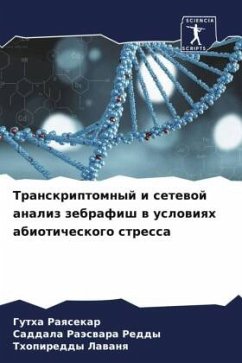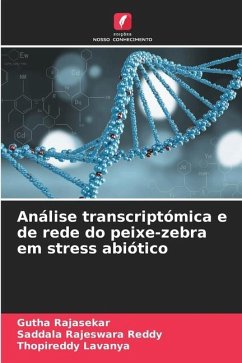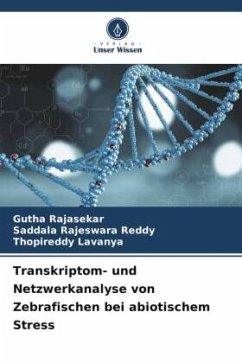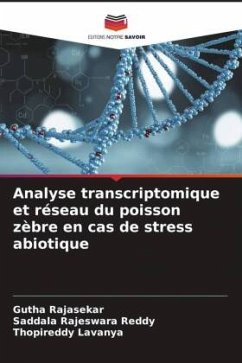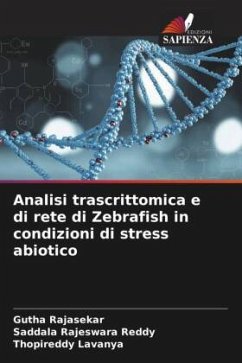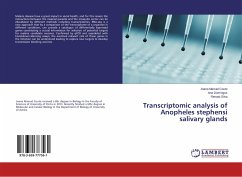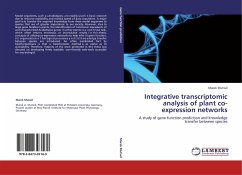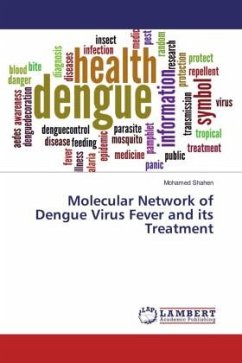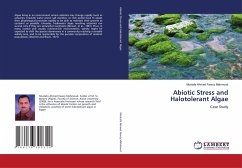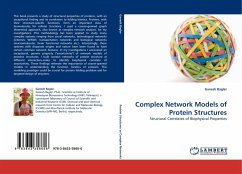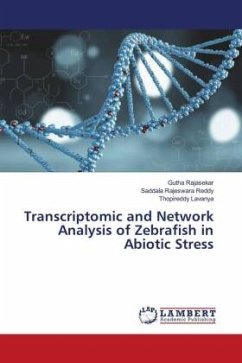
Transcriptomic and Network Analysis of Zebrafish in Abiotic Stress
Versandkostenfrei!
Versandfertig in 6-10 Tagen
40,99 €
inkl. MwSt.

PAYBACK Punkte
20 °P sammeln!
Abiotic stress factors have detrimental impact on the aquatic organisms especially on fishes. Anthropogenic activities are enhancing the woes of aquatic animals as they are responsible for relese of abiotc stress factors such as metals, pestisides and etc. Since the aquatic animals try to encounter the abiotic factors induced reponces with their biological responses, the adverse effects of the abiotic factors donot cause much damage to them. Understabding genomic responses and creating networks among them would provide a new information of stress mechanisms in organisms.



